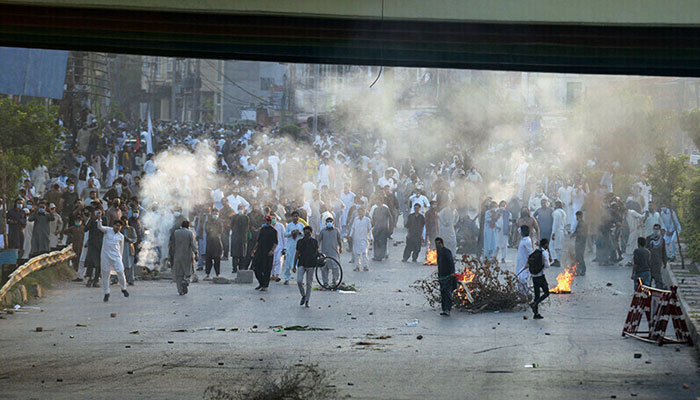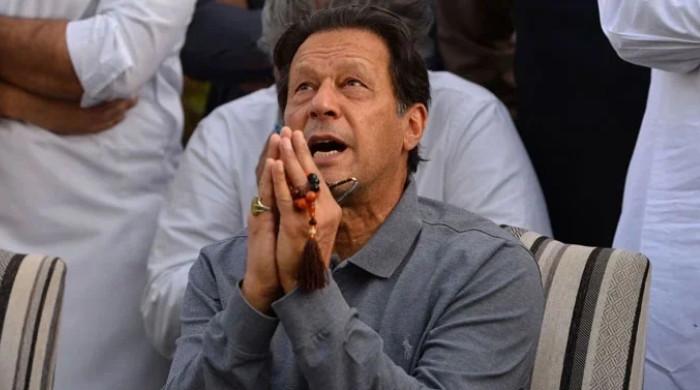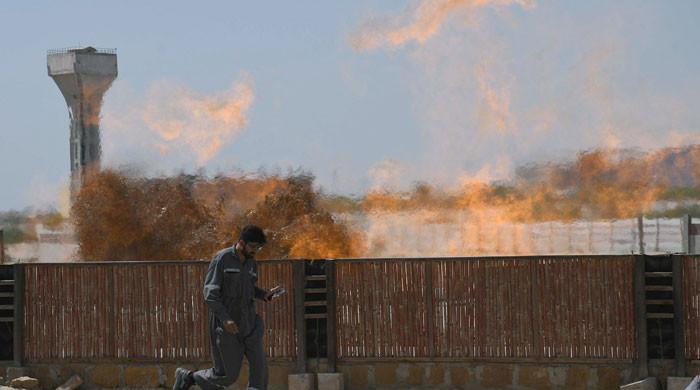After Senate, NA adopts 'peaceful assembly' bill amid opposition's protest
Bill proposes three-year imprisonment and unspecified fine to members of ‘unlawful assembly’
September 06, 2024

- Public Order bill aims to regulate public gatherings in Islamabad.
- Tarar says protests caused significant inconvenience to citizens.
- Bill empowers district magistrate to regulate and ban assemblies.
ISLAMABAD: Following the approval from the Senate, the National Assembly (NA) on Friday passed the “Peaceful Assembly and Public Order Bill, 2024”, proposing up to three-year imprisonment for organising unauthorised rallies in Islamabad.
The bill, introduced by Pakistan Muslim League-Nawaz (PML-N) senior leader Danyal Chaudhary, aims to regulate public gatherings in the federal capital and ensure they do not disrupt public order.
Speaking on the floor of the lower house of parliament, Minister for Law and Justice Azam Nazeer Tarar said that the purpose of the bill is to maintain peace during public assemblies and processions.
He dismissed the opposition’s concerns, saying that the increasing number of demonstrations in the federal capital has caused significant inconvenience to citizens.
“The bill seeks to address these challenges while preserving the right to peaceful assembly,” the federal minister added.
Despite opposition from lawmakers of the Pakistan Tehreek-e-Insaf (PTI) and the Sunni Ittehad Council (SIC), the peaceful assembly was passed by a majority vote.
With approval from both houses of parliament, the bill will now be sent to President Asif Ali Zardari for final endorsement to become law.
The new bill empowers the district magistrate to regulate and ban public assemblies in the federal capital, proposing a punishment of up to three years or/and an unspecified fine to the members of an ‘unlawful assembly’
Meanwhile, it also proposed that repeat offenders will be liable to imprisonment for a term that may extend to 10 years.
As per a report published in The News, the bill bounds the event coordinator of an assembly to apply in writing to the district magistrate at least seven days before the intended date of the event.
Upon receipt of application, the district magistrate, before granting permission, would examine the prevailing law and order situation and obtain security clearance reports from the law-enforcement agencies.
The law also seeks to empower the government to designate a specific area of the Islamabad Capital Territory (ICT) as a red zone or high-security zone, thereby prohibiting all types of assemblies in that area.
Likewise, according to it, a district magistrate would not permit any assembly in any area other than the defined, designated area and the assembly would proceed and take place at the specified locality or route, in the manner and during the times mentioned in the permission.
Whereas, the bill says a district magistrate would have the authority to impose a ban on any assembly within the ICT, if: (a) the assembly poses a risk to national security or public safety; (b) there are credible reports from law-enforcement agencies indicating a substantial risk of violence or public disorder; (c) the assembly would significantly disrupt the daily activities of the community, impede the movement of people and goods, or infringe upon fundamental right of citizens with regard to freedom of trade, business or profession guaranteed under Article 18 of the Constitution; or (d) another procession or assembly is already ongoing within the ICT, and the additional assembly would increase disruptions or pose additional security risks.
The bill says the ban on assembly under the proposed law would remain in force for the duration specified by the district magistrate, which may be extended if the conditions necessitating the ban persist.
“An officer-in-charge of a police station, on the instruction of the district magistrate, may command any assembly likely to disturb the public peace to disperse. It shall then be the duty of the members of such an assembly to comply and disperse accordingly,” it reads.











